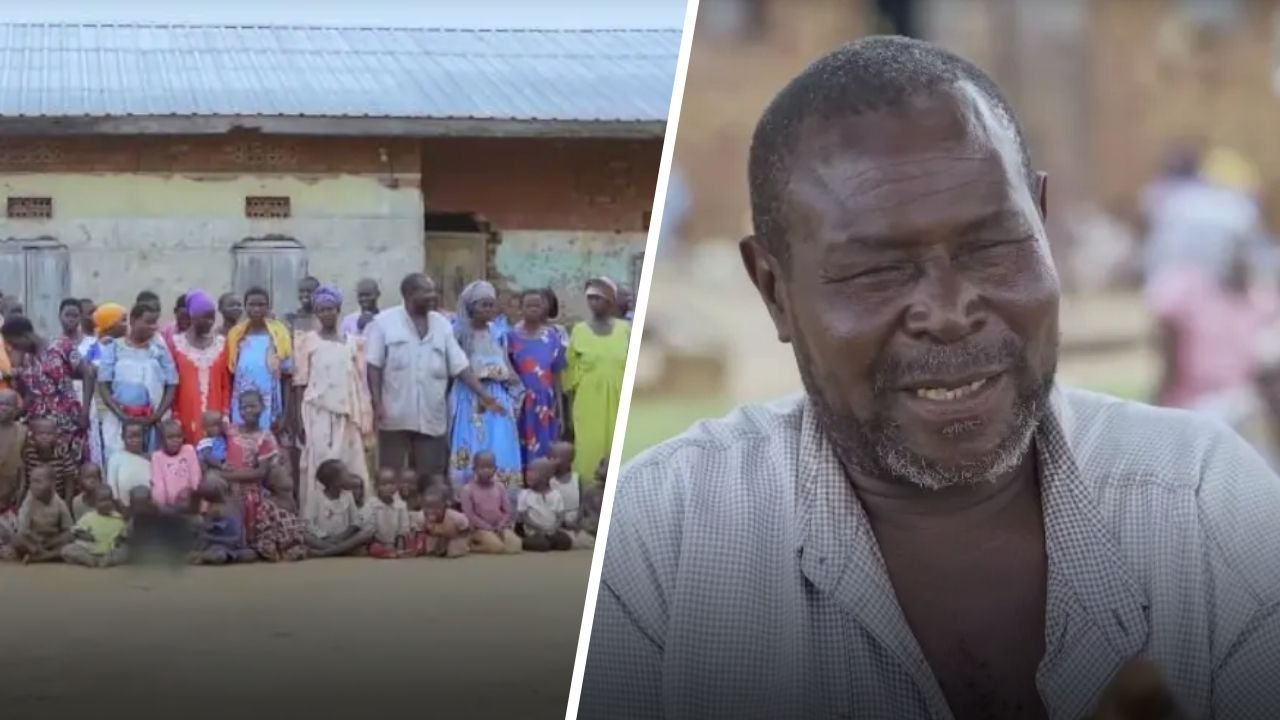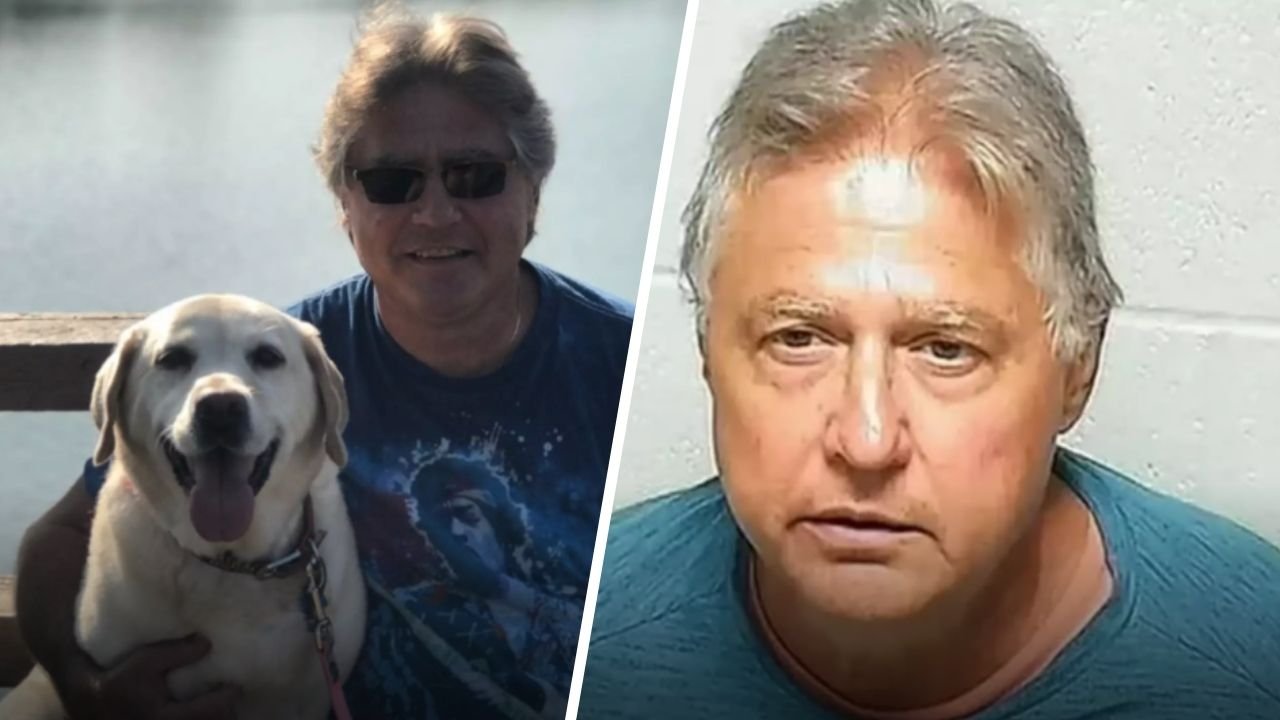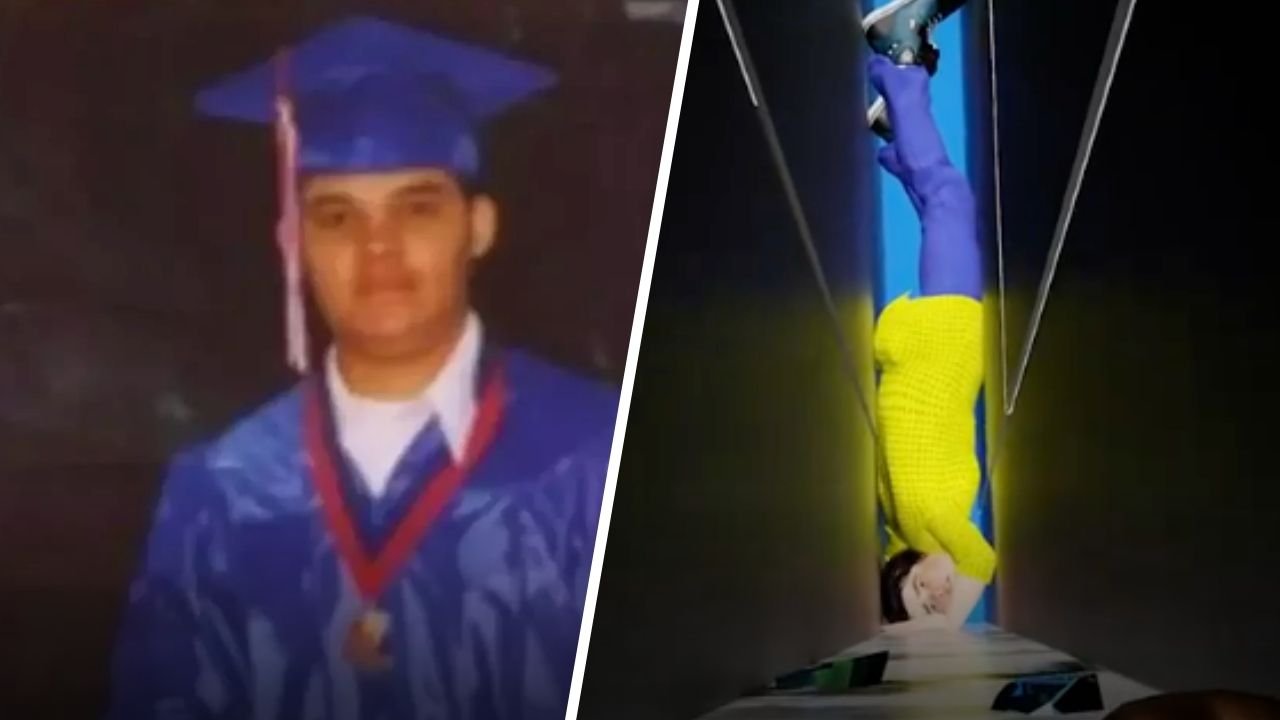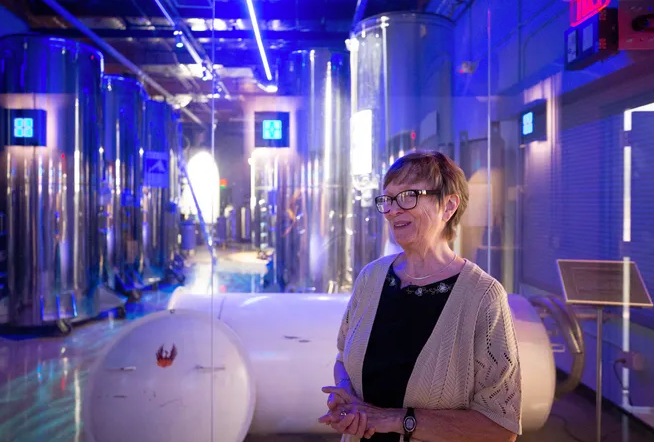New Hampshire father on trial for daughter’s murder: “He told me he hated her because she looked just like her mother,” friend testifies

In a courtroom in Manchester, New Hampshire, a heart-wrenching trial unfolds. Adam Montgomery, 34, stands accused of second-degree murder in the death of his 5-year-old daughter, Harmony Montgomery.
The case has gripped the state with its disturbing details. Testimonies paint a picture of a troubled father-daughter relationship marked by resentment and alleged violence.

Yet, with Harmony’s body still missing, the path to justice remains uncertain.
A Friend’s Chilling Testimony
Rebecca Maines, a friend of Montgomery, took the stand with a revelation that stunned the courtroom.
Maines, currently incarcerated for a parole violation, testified that Montgomery expressed deep hatred for his daughter.
“He told me he hated her right to his core because she looked just like her mother,” Maines said.
This statement suggests a motive rooted in personal animosity, offering a glimpse into Montgomery’s mindset.
Maines didn’t stop there. She recounted an incident where Montgomery admitted to physically abusing Harmony.
“He told me he backhanded her after seeing her cover her brother’s mouth and nose,” Maines testified.

This account points to a pattern of volatile behavior. It raises questions about the environment Harmony lived in before her disappearance.
Maines also shared details about Montgomery’s claims regarding Harmony’s whereabouts.
He allegedly told her he had dropped Harmony off with her biological mother, Crystal Sorey, in 2019.
Montgomery claimed Harmony was having bathroom accidents, which he believed were intentional. This narrative conflicts with other evidence, casting doubt on his credibility.
The Timeline: Custody and Disappearance
Harmony’s story is one of missed opportunities and systemic failures. Born in 2014, she faced challenges early on.
Her mother, Crystal Sorey, struggled with substance abuse, leading to Harmony’s placement in foster care.
In February 2019, Adam Montgomery was granted legal custody of Harmony by a Massachusetts court, despite his own history of legal troubles, including a 2014 robbery conviction.
Authorities believed Montgomery could provide a stable home, a decision that would later face scrutiny.
Harmony was last seen alive in late 2019. Authorities pinpoint December 7, 2019, as the likely date of her death.
Shockingly, her disappearance wasn’t reported until December 2021, nearly two years later. This delay stemmed from a lack of communication between family members and oversight agencies.
Crystal Sorey, who had regained sobriety, attempted to locate Harmony in 2021 but found no trace of her. Her inquiries prompted police to investigate, revealing the grim reality.
The delay in reporting Harmony’s disappearance allowed critical evidence to vanish. Investigators faced an uphill battle, relying heavily on witness testimonies.
The absence of a missing person report earlier has sparked outrage among child welfare advocates, who argue the system failed Harmony.
Montgomery’s absence from the trial has also drawn attention. Currently serving a 30-year sentence for an unrelated gun theft conviction, he has chosen not to attend his murder trial.
This decision has left observers speculating. Some see it as an admission of guilt; others wonder if he’s avoiding the emotional weight of facing Harmony’s memory.

Stepmother’s Account: A Violent End
Kayla Montgomery, Adam’s estranged wife and Harmony’s stepmother, provided a detailed and disturbing testimony.
Kayla, who is serving an 18-month sentence for perjury related to this case, took the stand as a key prosecution witness.
She described the events of December 7, 2019, when the family was living in a Chrysler Sebring after being evicted from their home.
Kayla said Harmony had been having frequent bathroom accidents, which frustrated Adam. On that day, after two such incidents, Adam allegedly snapped.
“He punched her multiple times in the head,” Kayla testified, her voice steady but heavy.
She described how Adam covered Harmony with a blanket as the child cried and moaned. Hours later, Harmony fell silent. Kayla believed she was dead.
The aftermath was chilling. Kayla testified that Adam placed Harmony’s body in a red duffel bag and stored it in the trunk of their car.
Over the following months, he allegedly moved the bag to hide it. First, it was placed in a ceiling vent at a transitional housing unit where the family briefly stayed.
Later, Adam moved it to a walk-in freezer at his workplace, a Portland Pie Company restaurant in Manchester. These actions, Kayla said, were deliberate attempts to conceal the crime.
Kayla’s testimony wasn’t without complications. She admitted to lying to a grand jury in 2020, claiming Harmony was still alive.
Her plea deal requires her to testify truthfully, but the defense has questioned her reliability, citing her criminal history and strained relationship with Adam.

Defense Strategy: Shifting Blame
Montgomery’s defense team has taken a bold approach. They have conceded his guilt on two lesser charges: falsifying physical evidence and abusing a corpse.
These admissions relate to his alleged efforts to hide Harmony’s body. However, they vehemently deny that he killed her.
Instead, they suggest Harmony died on December 6, 2019, while in Kayla’s care.
The defense argues that Kayla’s account is inconsistent. They point to her perjury conviction and suggest she may have a motive to shift blame onto Adam.
“Kayla was the last person with Harmony,” defense attorney Caroline Smith stated in court.
This strategy aims to create reasonable doubt, framing Kayla as an unreliable witness with her own culpability.
The defense also highlights the lack of physical evidence tying Montgomery to the murder.
Without Harmony’s body, they argue, the prosecution’s case rests on circumstantial accounts.
This tactic has divided observers, with some seeing it as a desperate move and others as a calculated effort to exploit gaps in the evidence.

The Search for Harmony’s Body
The absence of Harmony’s body is a central challenge in this case. Investigators have searched multiple locations based on Kayla’s testimony.
In 2022, they scoured the ceiling vent at the Families in Transition shelter in Manchester.
They also examined the freezer at the Portland Pie Company. Despite these efforts, no trace of Harmony has been found.
Forensic teams have used cadaver dogs and advanced technology, but the trail has gone cold.
The lack of a body complicates the prosecution’s ability to prove the cause of death. It also deprives Harmony’s loved ones of closure.
“We just want to bring her home,” Crystal Sorey said in a 2023 interview, her voice breaking.
The search has extended beyond physical locations. Police have interviewed dozens of witnesses, including neighbors and former associates of Montgomery.
In 2022, authorities drained a section of the Merrimack River near a bridge Montgomery frequented, suspecting he may have disposed of evidence there. Nothing was found.
A Community in Mourning
Harmony’s case has left a deep mark on Manchester. Vigils have been held annually since her disappearance became public.
Community members have created a memorial garden near her last known residence, adorned with flowers and stuffed animals.
“She was one of ours,” said local resident Sarah Thompson at a 2024 vigil. “We won’t forget her.”
The case has also ignited calls for reform. Child welfare advocates argue that Harmony’s custody arrangement should have raised red flags.
Montgomery’s criminal history and unstable living situation were known to authorities.
Yet, he was deemed fit to care for a vulnerable child. A 2023 state report criticized Massachusetts and New Hampshire agencies for poor coordination, recommending stricter oversight.
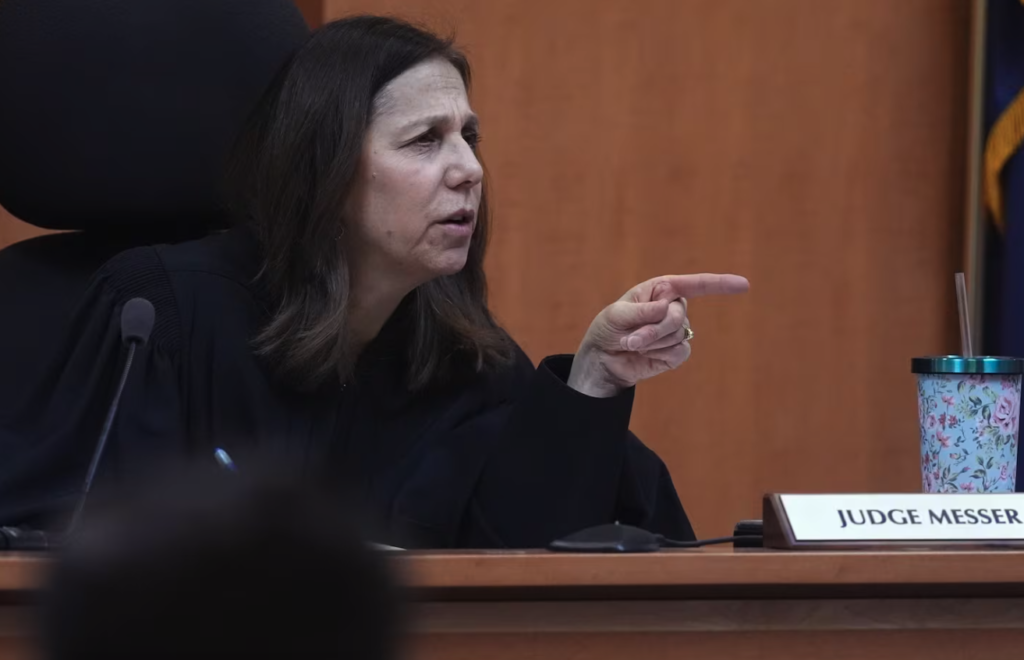
The Road to Justice
The prosecution rested its case on February 14, 2024, after presenting 20 witnesses.
The defense is now calling its own, aiming to poke holes in the narrative. Montgomery’s 2022 not guilty plea looms large.
At the time, he claimed to love Harmony “unconditionally,” a statement that now rings hollow against the evidence.
The jury faces a daunting task. They must weigh Kayla’s detailed but tainted testimony against Maines’ hearsay and the defense’s alternate theory.
The absence of Harmony’s body adds a layer of ambiguity. Legal experts predict a contentious deliberation, with outcomes ranging from a murder conviction to acquittal on the top charge.
If convicted of second-degree murder, Montgomery faces life in prison without parole.
The lesser charges carry sentences of up to seven years each, but these would run concurrently with his existing 30-year term. For now, the courtroom remains a battleground of truth and doubt.
Case Details at a Glance
| Aspect | Details |
|---|---|
| Defendant | Adam Montgomery, 34, charged with second-degree murder. |
| Victim | Harmony Montgomery, 5 years old, last seen in 2019. |
| Key Testimony | Friend claims Montgomery hated Harmony; stepmother describes violent death. |
| Body Status | Never found, despite searches in multiple locations. |
| Defense Strategy | Admits to lesser charges, denies murder, suggests stepmother’s involvement. |
| Trial Location | Manchester, New Hampshire, ongoing as of February 2024. |
Looking Ahead
The trial of Adam Montgomery is more than a legal proceeding; it’s a reckoning for a child’s stolen life.
Each testimony peels back layers of neglect, anger, and loss. As the defense presents its case, the jury must navigate a maze of conflicting stories.
For Harmony, whose bright smile haunts the courtroom through photos, the hope is that truth will prevail.
Her story has become a rallying cry. It demands better protections for children, stronger systems, and accountability for those who fail them.
Whether Montgomery is convicted or acquitted, Harmony’s legacy endures—a reminder that every child deserves safety and love.







